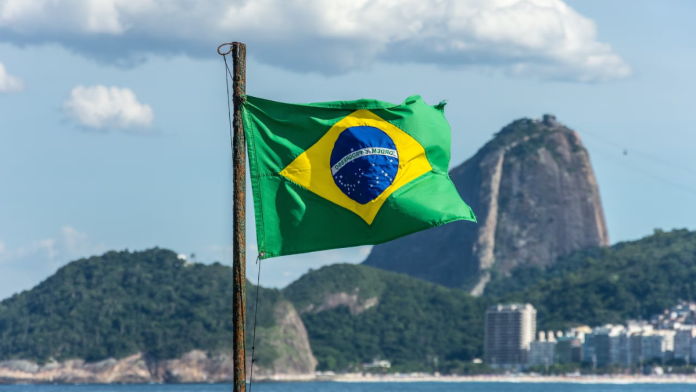Brazil has carried out the biggest crackdown on organised crime in its history. Authorities exposed a multibillion-dollar money laundering scheme linked to the Primeiro Comando da Capital (PCC). This group is one of the most feared cartels in Brazil.
The operation, called Hidden Carbon, was launched across eight states. It involved more than 1,400 federal agents. The targets included 350 individuals and companies. Officials also froze assets worth around R$1 billion connected to cartel operations.
Brazil’s Finance Minister Fernando Haddad praised the action. He described it as “exemplary” and said it struck the upper levels of organised crime. Unlike past cases, the raids reached the system’s leadership rather than small players.
The PCC’s Rise in Brazil
The Primeiro Comando da Capital, or PCC, was born in the 1990s. It emerged after a São Paulo prison massacre. Since then, it has grown into a multinational criminal network.
The group controls drug routes, but its power now goes far beyond trafficking. Officials say it uses legal businesses, fake contracts, and shadow companies to disguise profits. The cartel’s reach has expanded into finance, transport, energy, and even agriculture.
Brazil launches retaliation process after Trump slaps crushing 50 percent tariffs on goods
Operation Hidden Carbon revealed how the cartel managed to merge crime with the legal economy, making detection harder for years.
Fuel Laundering Scheme Worth Billions
The largest discovery of the probe was tied to Brazil’s fuel sector. Investigators said the cartel imported diesel and naphtha worth almost R$10 billion between 2020 and 2024. The imports were made with funds connected to PCC activities.
These products were sold through more than 1,000 gas stations in ten states. Tax authorities estimate the cartel moved around R$52 billion in transactions during this four-year period.
Authorities allege that the network involved fuel distributors, formulators, and station owners. They worked together to launder criminal money. Investigators also reported tax evasion, fraudulent billing, and fuel adulteration.
Officials compared the structure to a “criminal refinery”. It showed how crime had entered ordinary economic sectors. In practice, citizens may have bought fuel directly linked to cartel activity.
Financial Networks and Shadow Banking
The operation also uncovered serious links to Brazil’s financial sector. A fintech company called BK Bank was identified as a shadow bank. Officials said it handled nearly R$46 billion in suspicious transactions in only four years.
The bank allegedly disguised cartel money as legitimate transfers. This allowed the PCC to move billions without attracting attention.
Investigators also found 40 investment funds worth about R$30 billion. These funds were secretly controlled by cartel members. Complex layers of ownership were used to hide the real beneficiaries.
The PCC had also invested in hard assets. These included ethanol plants, a port terminal, farmland, and a fleet of fuel trucks. Such investments provided steady revenue and masked the true origin of money.
Impact on Listed Companies
The raids hit several well-known companies. Reag Capital, a listed asset manager, confirmed that searches took place at its offices. The firm said it was cooperating fully. However, investors reacted quickly. Its shares fell by 17 percent on the São Paulo stock exchange.
Fuel companies Aster and Copape were also named. Both firms have yet to respond to the accusations.
Beyond Drugs: Expansion Into Multiple Industries
Authorities warned that Brazil’s organised crime has moved far beyond drug trade. The PCC now operates in fuel, mining, energy, and public transport. This shift makes it hard to separate legal businesses from illegal ones.
Operation Hidden Carbon required support from multiple government agencies. Federal police, prosecutors, civil police, and military police all joined forces. Tax inspectors also played a central role in tracing suspicious transactions.
Meanwhile, a parallel federal probe discovered even more fraud. Police reported another R$23 billion in illegal fuel deals. They also identified R$600 million in money laundering schemes connected to the same sector.
📉🇧🇷 Trump’s trade strike backfires — Brazil cuts off dialogue, eyes India in high-stakes pivot
A Turning Point in Brazil’s Fight Against Organised Crime
Officials believe that the raids mark a major victory. For years, the PCC hid behind financial firms, gas stations, and investment funds. By freezing billions in assets and exposing hidden ownership, the state struck at the cartel’s financial backbone.
At the same time, challenges remain. The PCC is not limited to Brazil. It has operations in neighboring countries and ties to international crime. For Brazilian authorities, the next step will be to strengthen financial oversight and cross-border cooperation.
Still, Operation Hidden Carbon sent a clear message. Organised crime is no longer safe hiding behind the legal economy. Brazil has shown that even the most powerful cartel networks can be exposed and dismantled when the state acts with scale and coordination.
